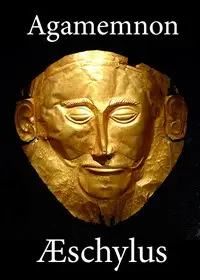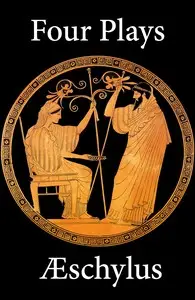"The Seven Plays in English Verse" by Sophocles is a compilation of ancient Greek tragedies that explores profound themes of fate, morality, and what it means to be human. It dives into the intricacies of characters in tough situations. One of the opening stories introduces Antigone and her sister Ismene, daughters of Oedipus. They are in mourning after losing their brothers, Eteocles and Polynices. The new ruler, Creon, decrees that Eteocles be honored with burial while forbidding the burial of Polynices, who he declares a traitor. Fueled by family loyalty and a sense of divine justice, Antigone chooses to go against Creon's order and bury Polynices properly, prompting a struggle between the laws of the state and moral obligations. The collection hints at pride, obedience, and the devastating consequences that come from being stubborn and challenging destiny.

The Seven Plays in English Verse
By Sophocles
In a world of ancient laws and family loyalty, a defiant woman risks everything to honor her brother's memory, sparking a tragic conflict with the king.
Summary
About the AuthorSophocles was an ancient Greek tragedian, known as one of three from whom at least one play has survived in full. His first plays were written later than, or contemporary with, those of Aeschylus; and earlier than, or contemporary with, those of Euripides. Sophocles wrote more than 120 plays, but only seven have survived in a complete form: Ajax, Antigone, Women of Trachis, Oedipus Rex, Electra, Philoctetes, and Oedipus at Colonus. For almost fifty years, Sophocles was the most celebrated playwright in the dramatic competitions of the city-state of Athens which took place during the religious festivals of the Lenaea and the Dionysia. He competed in thirty competitions, won twenty-four, and was never judged lower than second place. Aeschylus won thirteen competitions, and was sometimes defeated by Sophocles; Euripides won four.
Sophocles was an ancient Greek tragedian, known as one of three from whom at least one play has survived in full. His first plays were written later than, or contemporary with, those of Aeschylus; and earlier than, or contemporary with, those of Euripides. Sophocles wrote more than 120 plays, but only seven have survived in a complete form: Ajax, Antigone, Women of Trachis, Oedipus Rex, Electra, Philoctetes, and Oedipus at Colonus. For almost fifty years, Sophocles was the most celebrated playwright in the dramatic competitions of the city-state of Athens which took place during the religious festivals of the Lenaea and the Dionysia. He competed in thirty competitions, won twenty-four, and was never judged lower than second place. Aeschylus won thirteen competitions, and was sometimes defeated by Sophocles; Euripides won four.









